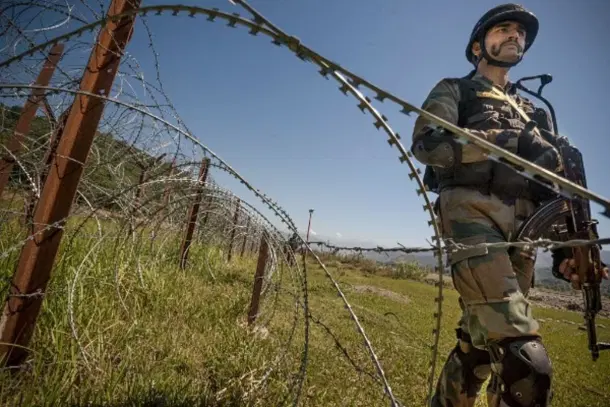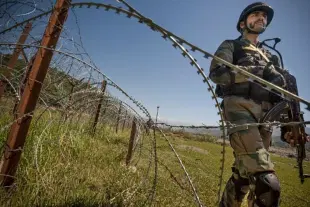News Brief
Tensions Mount At Border: Pakistan Violates Ceasefire For 12th Night, India Arrests Third Infiltrator Crossing LoC
Arun Dhital
May 06, 2025, 04:01 PM | Updated 04:01 PM IST
Save & read from anywhere!
Bookmark stories for easy access on any device or the Swarajya app.


Tensions along the Line of Control (LoC) between India and Pakistan have sharply escalated, marked by continuous ceasefire violations by Pakistan. A Pakistani national has been detained along the LoC in the Poonch sector of Jammu and Kashmir, according to an Army official quoted by ANI.
Pakistani troops engaged in unprovoked small-arms firing for 12 consecutive nights on 5-6 May, targeting multiple forward areas opposite Kupwara, Baramulla, Poonch, Rajouri, Mendhar, Naushera, Sunderbani, and Akhnoor sectors in Jammu and Kashmir. The Indian side has retaliated consistently, maintaining an intensified alert in border areas.
The Pakistani national was apprehended near the LoC in the Poonch sector on 6 May. The intruder, a 24-year-old, was taken into custody for questioning by the Indian Army. This marks the third such arrest of Pakistani nationals near the LoC in recent days, reflecting increased border security measures.
Earlier in the week, a Pakistani national, identified as Hassam Shahzad from Tarinote village in Pakistan-occupied Kashmir, was apprehended by Indian troops in the Krishna Ghati sector. Shahzad was found hiding in a shelter approximately 100 meters inside Indian territory.
Upon capture, he was found carrying RS 1,800 in Pakistani currency, an identity card, and two mobile SIM cards. During preliminary questioning, he claimed to have crossed the LoC inadvertently.
Since 24 April, after India suspended the Indus Waters Treaty, Pakistan has targeted Indian posts along the LoC and responded with airspace closure, trade halt, and warnings that Indus river water diversion would mean “Act of War.”
The past week has seen continued ceasefire violations and heightened security operations along the LoC and 3 Pakistani nationals arrested. Islamabad’s Indus River System Authority on Monday (5 May) raised serious concerns over a sudden decline in water inflows from the Chenab River.




